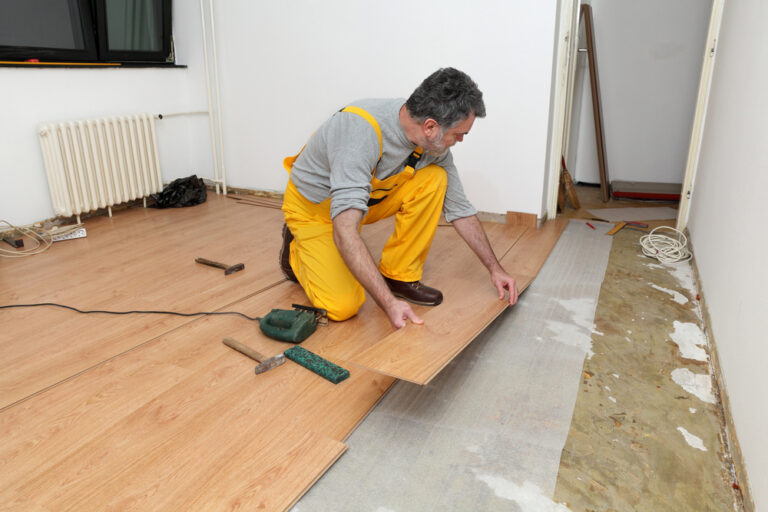Vinyl flooring has been steadily gaining in popularity as a versatile and durable flooring option. Its water-resistant nature and ease of maintenance make it a compelling choice for bathrooms where humidity and frequent water exposure are the norm. While installing vinyl tiles in bathrooms has many advantages, it’s crucial to weigh various factors before taking the plunge. This article delves into key considerations for choosing and maintaining vinyl flooring in wet bathroom environments.
Material Properties
Vinyl flooring is inherently water-resistant, making it an excellent option for wet areas like bathrooms. Its composition prevents water absorption, thus minimising the risks of mould, mildew, and water damage. However, it’s essential to ensure that the installation is sealed correctly, particularly around the edges, to offer maximum protection against moisture. In addition to water resistance, vinyl flooring is also known for its durability. Quality vinyl can last up to 20 years if well-maintained, even in a high-traffic, wet environment like a bathroom.
Aesthetic Flexibility
Vinyl tiles offer endless design possibilities, from mimicking natural stone to intricate patterns. With advances in manufacturing, modern vinyl tiles can convincingly emulate more expensive materials like marble or hardwood at a fraction of the cost. Thus, vinyl tiles in bathrooms not only stand up to moisture but also contribute to the room’s aesthetic appeal.
Comfort and Safety
Vinyl flooring offers a softer and warmer feel underfoot compared to ceramic or stone tiles, providing a more comfortable experience when you step out of the shower or bath. Safety is paramount in a wet environment. Opt for vinyl tiles with a high slip-resistance rating to minimise the risk of accidents, especially when the floor is wet.
Maintenance
Vinyl flooring is low-maintenance, requiring just regular sweeping and occasional mopping. However, it’s advisable to avoid abrasive cleaners, which could damage the surface. For tougher stains or marks, specialised cleaning solutions are available that won’t compromise the integrity of the vinyl.
Cost Considerations
Vinyl flooring is generally more budget-friendly than other types of bathroom flooring, like ceramic tiles or natural stone. However, it’s important to consider the cost of professional installation, especially if the bathroom layout is complex or requires additional moisture-proofing measures.
Installation Aspects
While DIY installation is possible, hiring professionals ensures the job is done right, particularly in a bathroom setting where water resistance is vital. Incorrect installation can lead to water seeping through the seams, negating the water-resistant advantages of vinyl tiles.
Conclusion
Vinyl flooring offers a compelling mix of durability, aesthetic versatility, and water resistance, making it an excellent choice for bathrooms. However, specific considerations around safety, maintenance, and installation can’t be overlooked. By paying attention to these factors, you can make an informed decision that ensures your bathroom is not just stylish but also functional and safe.

